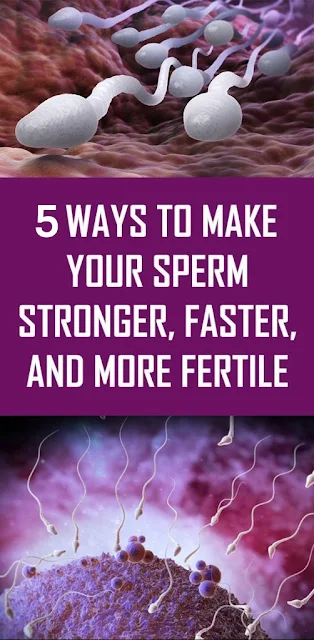Your testicles are currently locked and loaded with millions of healthy sperm, ready for release at a very gratifying moment's notice. This seems like a given. The truth is that a wide range of variables, such as your overall sperm count, your sperm's ability to swim, and their morphology, or size and shape, can have an impact on various aspects of your sperm's viability.
Darius Paduch, associate professor of urology and reproductive medicine at Weill Cornell Medical College and urologist at New York-Presbyterian Hospital, says that any man who wants to start a family now or in the future should be concerned about the health of his sperm and take any necessary steps to improve sperm quality. About 30% of reproductive issues are caused by men. By protecting your swimmers now, you might avoid being cozier than you ever thought with a sterile plastic cup.
1. Lose weight.
If you’re overweight or obese, shedding kilos will do more than help you look better naked—it will reinvigorate your reproductive mojo. “Excess fat can decrease testosterone levels, which affects your ability to produce sperm,” Dr. Paduch says. Fat in your belly and thighs also increases your body temperature. “The testicles are outside of your body because sperm prefer colder temperatures,” he adds. Too much fire in your loins can decrease total sperm count and motility, and cause DNA damage. “Men who lose weight improve their sperm quality naturally,” he adds.
2. Lay off the soy.
If you’re trying to conceive, better skip sushi dates for a while. Raw fish is off limits for women during pregnancy while soy products—such as edamame and soy sauce—can affect sperm production. Soy contains phytoestrogens, naturally occurring compounds in plants that mimic the female hormone oestrogen. Your body may respond to higher levels of oestrogen by churning out less testosterone, which is essential for sperm production. In a study of mice, rodents fed a soy-rich diet had 25 percent lower sperm counts and fathered 21 percent fewer pups than those that ate a soy-free diet.
3. Pound the pavement.
Men who exercise about 7 hours a week have a 48 percent higher sperm count than guys who break a sweat for less than an hour a week, according to researchers at the Harvard School of Public Health. Exercising outdoors has an especially beneficial boost, possibly due to the increased levels of vitamin D you receive from the sun, which may play a role in sperm production. In addition to helping you maintain a healthy weight, exercise can rein in stress. An Italian study found that men with the highest levels of stress and anxiety had lower sperm concentrations, decreased motility, and a greater likelihood of DNA damage compared to those with lower levels of stress.
4. Upgrade your eats.
A major factor that determines whether your sperm sink or swim is the health of your mitochondria—or your cells’ batteries. “Motility depends on the energy level of the sperm, which is determined by the mitochondria,” Dr. Paduch says. Eating a diet high in fat and light in plants can increase the risk of free radical damage, which negatively impacts the mitochondria. A study in the journal Human Reproduction found that men who downed the most fat had 43 percent lower total sperm count compared to those with the lowest fat intake.
Eating plenty of antioxidant-rich foods such as fruits, vegetables, and whole grains can combat free radicals and improve the quality and quantity of your sperm. In addition, consider taking a supplement containing L-carnitine, an amino acid that’s been shown to boost sperm count and motility, Dr. Paduch says. It’s also found naturally in poultry, fish, dairy products, and avocados.
5. Skip the hot tub.
You put your time in at the gym, so now you deserve a soak in the steamer, right? Better stay on dry land, especially if you and your partner are trying to conceive. “Research in monkeys shows that just 15 minutes to half an hour in a hot tub renders them completely sterile,” Dr. Paduch says. “An increase of just 2 degrees negatively affects sperm production in humans.” His advice: A quick 10-minute soak is fine, but if you’re trying to have kids in the next 3 to 6 months, you’re better off keeping your dips infrequent and brief—or avoiding them altogether until there’s a bun in the oven.

